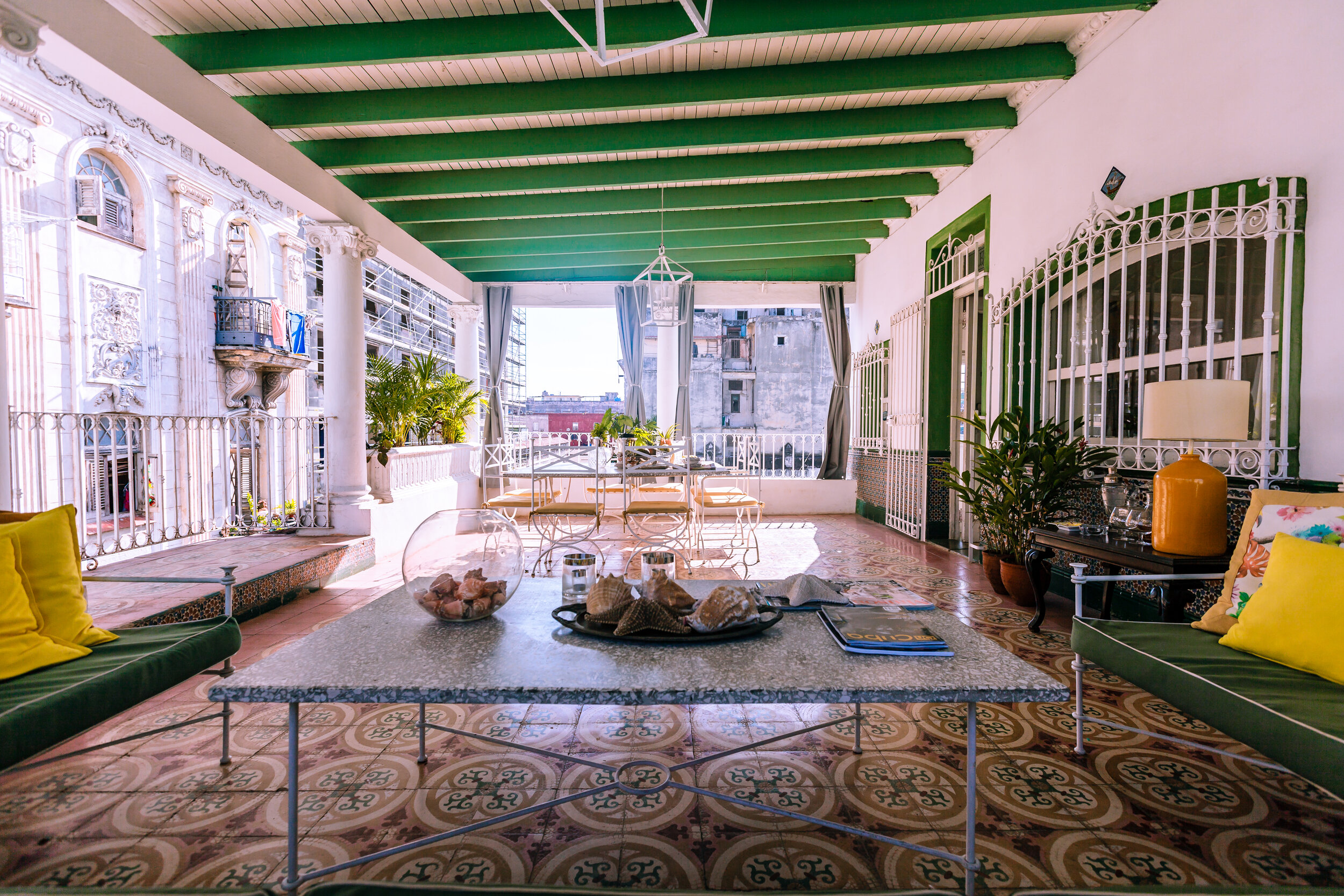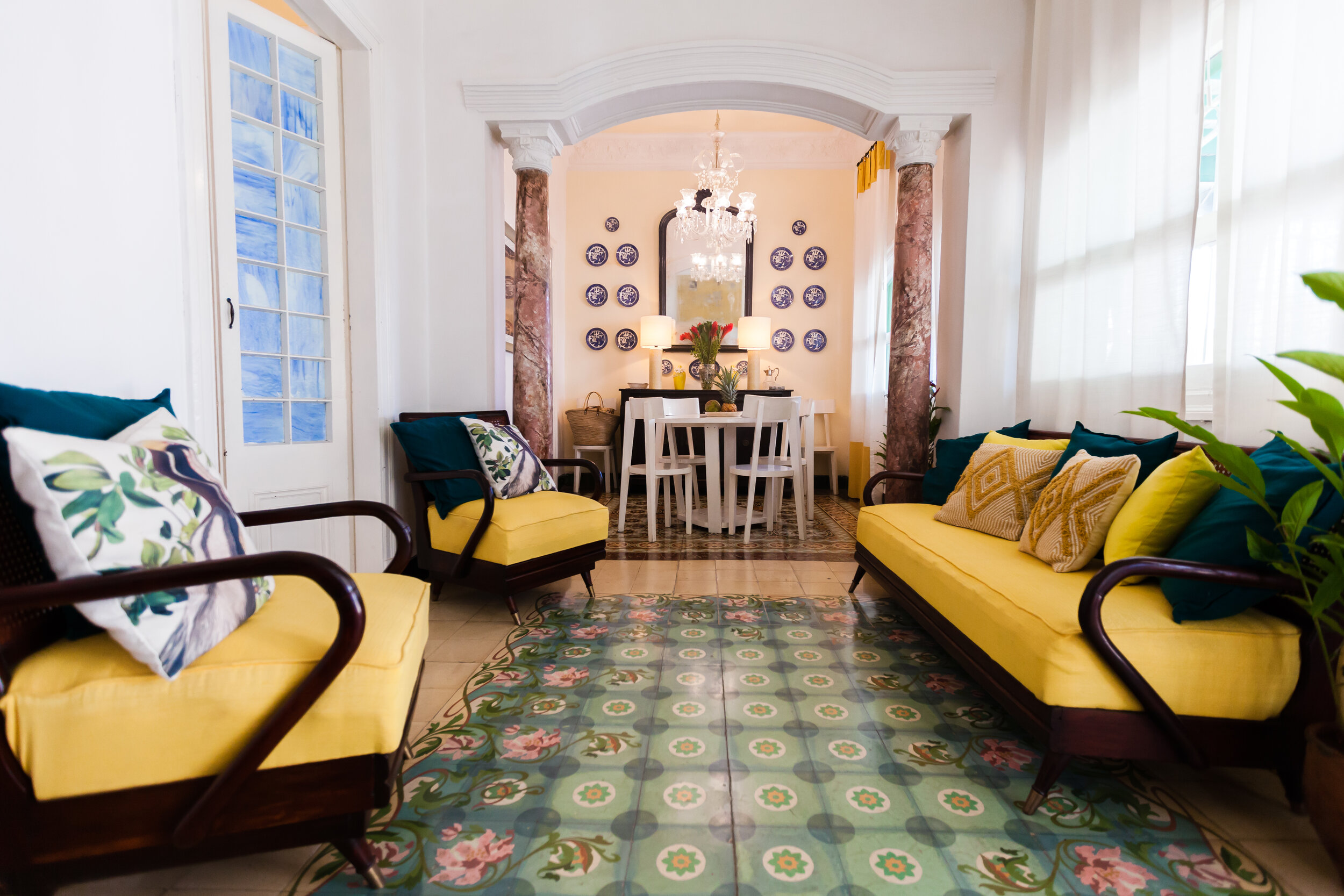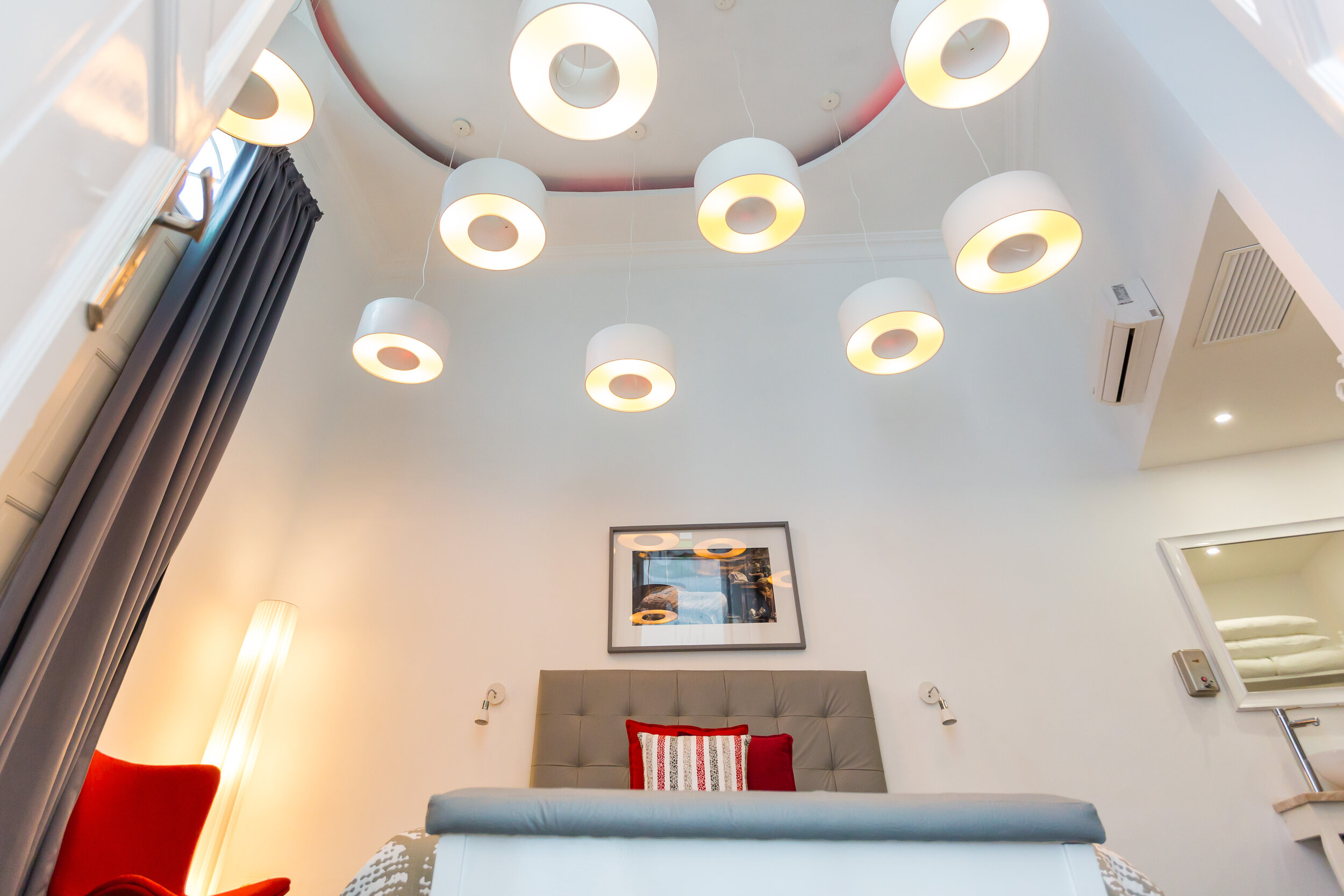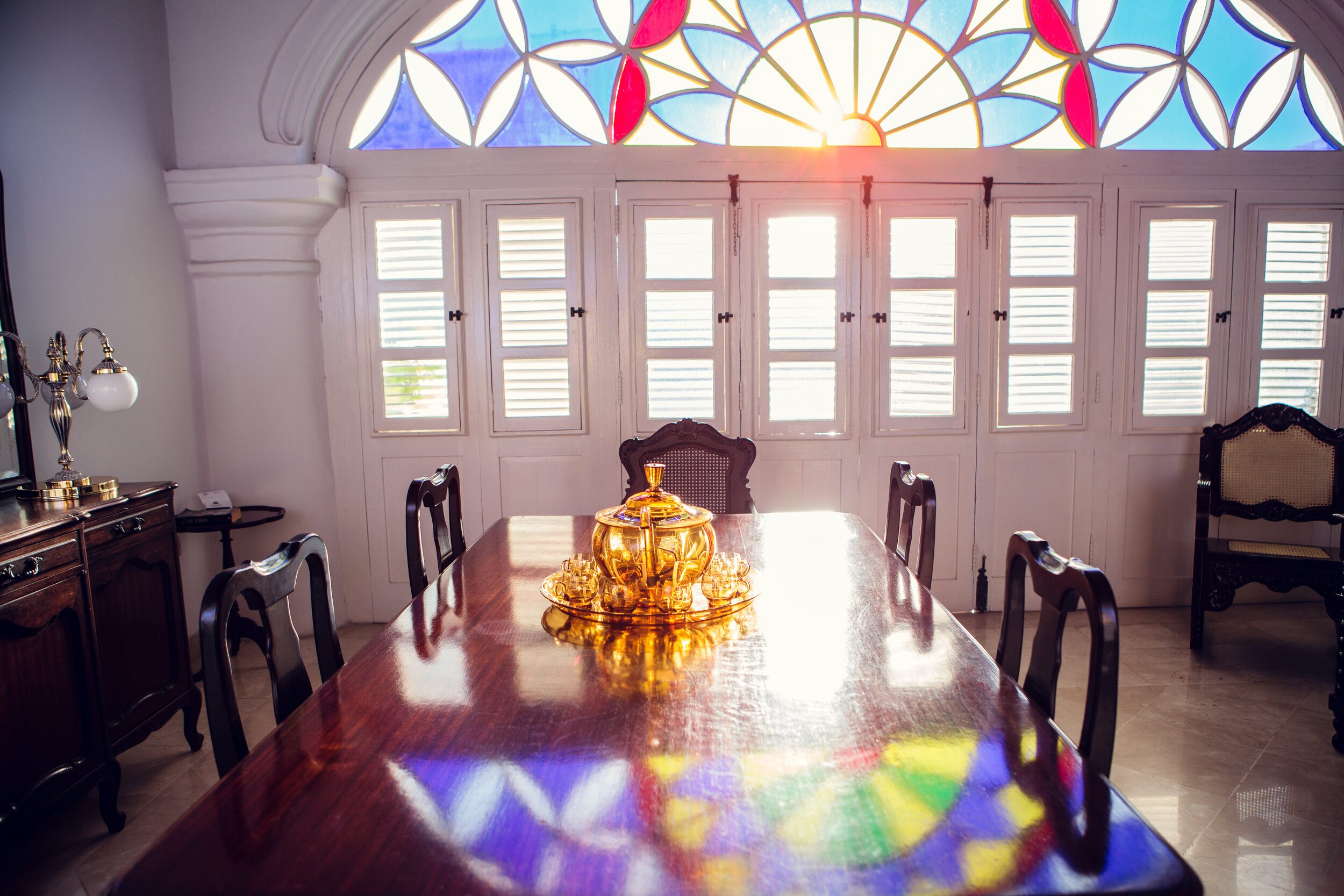Casa Particular: A Cuban Airbnb Experience
View from the balcony of a casa particular in Old Havana || Photo by Claudio Peláez Sordo
Are you planning a trip and looking for things to do in Cuba? Chances are you’re trying to decide whether to book a bed and breakfast, Airbnb, or hotel in Cuba and have come across what is called a casa particular (often shortened to simply “casa”) which means "private house" in Spanish. When searching for where to stay in Cuba, we suggest you look no further and narrow your search to a casa particular in Havana as this is the true way to experience the island and tick off a homestay experience on your personal bucket list.
A casa particular in Cuba is a well-regulated network of private homestays permitted under Cuban law to support tourism. Visitors staying at a casa particular rent a room in the owners’ home so it’s like a bed and breakfast. What makes a casa particular special is the opportunity to stay with and learn from a local which is something that we’re all about at EEAbroad.
Today, many casas particulares can be rented through online providers and platforms, some specifically Cuban, and others that are worldwide such as an Airbnb in Cuba. Residing at a casa particular is part of any true Cuban experience unless you prefer a hotel in Cuba which won’t necessarily surpass a casa particular in terms of comfort or amenities (and definitely not in price or an authentic experience.)
Most casas particulares offer meal options such as breakfast and dinner, plus they can help plan activities and transportation logistics. It’s more than just staying at someone’s house — it’s can feel like an all-inclusive experience. But how did a casa particular become a ubiquitous part of travel in Cuba? Let’s take a closer look…
THE ORIGIN OF CASAS PARTICULARES
Private property in Cuba was expropriated during the first few years of the Cuban Revolution, along with any private economic activity that was constituted as competition to the state sector. However, during the economic crisis of the Special Period in the 1990s, the revolutionary government was forced to relax its hold on maintaining a fully communist state. In an attempt to offset the effects of the economic crisis, the Cuban government took measures to further develop the tourism industry on the island.
Due to Cuba’s limited hotel infrastructure, the government identified the need for a license that would permit the renting of bed and breakfast style rooms at private homes to help boost tourism. Following this, many Cubans secured a license to out rent room(s) and that was the beginning of the casa particular. To this day, many homeowners continue to list their property as a casa particular despite the ever-changing and contradictory restrictions the government continues to impose.
At the beginning of 2000, once the hotel infrastructure in Cuba was well-established and the Cuban economy was slowly recovering from the economic crisis of the Special Period, the government attempted to constrict private businesses and in turn, eliminate housing rental licenses. Owners of private homes who had already secured licenses managed to maintain their permits and discreetly operate in the midst of government rollbacks discouraging the formation of new privates businesses.
However, the transition of power from Fidel Castro to Raúl Castro in 2008 brought on a set of economic reforms that favored the private sector, entrepreneurship, and foreign investment on the island. Thus, after the subsequent reestablishment of relations with the United States during the Obama Administration, Cuba received an influx of tourism with a record number of four million visitors in 2017.
Legal casas particulares in Cuba can be recognized by a white sign with a blue symbol on the front of the house.
The economic re-opening and explosion of tourism greatly increased the demand for casas particulares which led to people heavily investing in home purchases to rent (with the requirement that you had to be a Cuban citizen, however, investors found a way around this as they had local contacts or family members purchase property on their behalf). With an array of new casas particulares, competition with a variety of offerings grew.
Today, there are three types of private rental options in Cuba, all operating under the same type of government license — a casa particular in which the owners co-exist with clients; apartments and small houses that are privately rented (where the owners don’t live), and lastly, hostales, also known as hostels in Cuba, which are similar to small-scale, privately-run hotels that offer single and multi-occupancy rooms.
Since the widespread appearance of the Internet in Cuba, owners of private homes discovered online platforms such as Airbnb in Cuba to advertise and increase their bookings. However, that’s not to say that there haven’t been challenges. The Trump administration’s rollback of the Obama-era opening and ties to Cuba led to restrictive measures on U.S. tourism to Cuba. On top of this, COVID-19 plagued international tourism and Cuba was no exception with many owners of a casa particular struggling to stay afloat. Fortunately, there is talk of a country-wide mass vaccination program planned to roll out in May 2021 which will greatly alleviate the decrease in tourism, the country’s leading form of revenue.
It may take time for casas particulares to get their operation back to normal, however, it’s certain that this unique form of immersive accommodation will continue to proliferate the island. A mindful traveler looking for unique things to do in Cuba and an experience beyond the typical tourist tracks will be drawn to the warmth and hospitality that a casa particular offers. Casas particulares have become the norm for where to stay in Cuba — one in which you are not simply a visitor but a participant in Cuban life and culture.
We, at EEAbroad, encourage you to discover Cuba through a stay at a casa particular in Havana with us. All of our cultural travel experiences as well as study abroad and faculty-led programs are centered around residing at a casa particular to get the most out of sharing with those who know best — locals.






